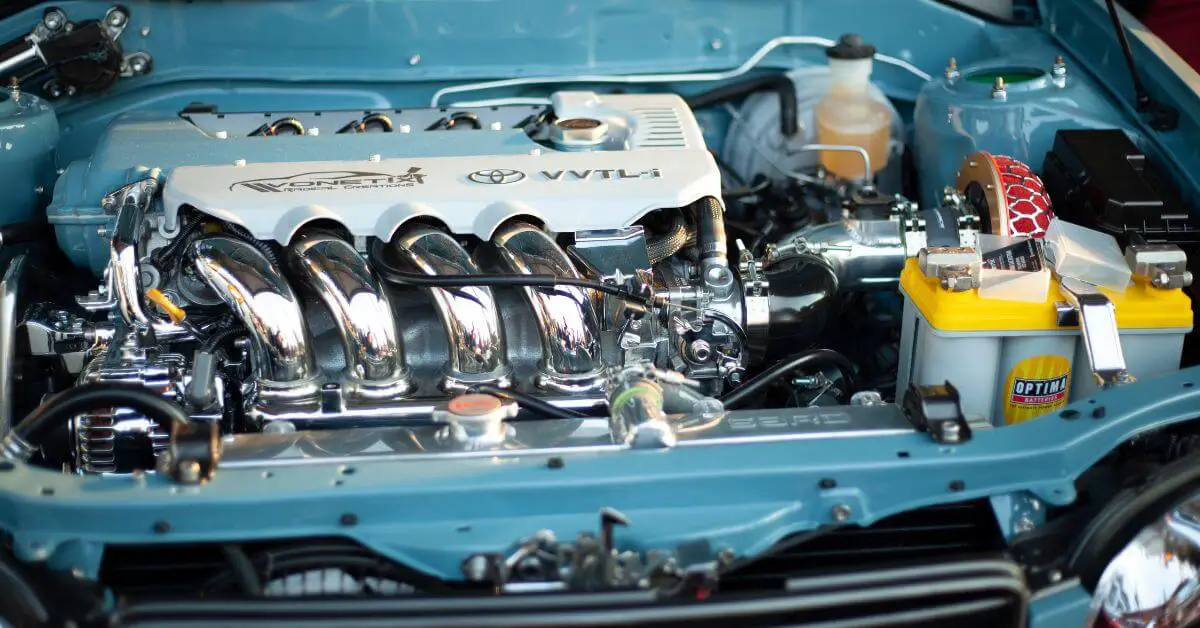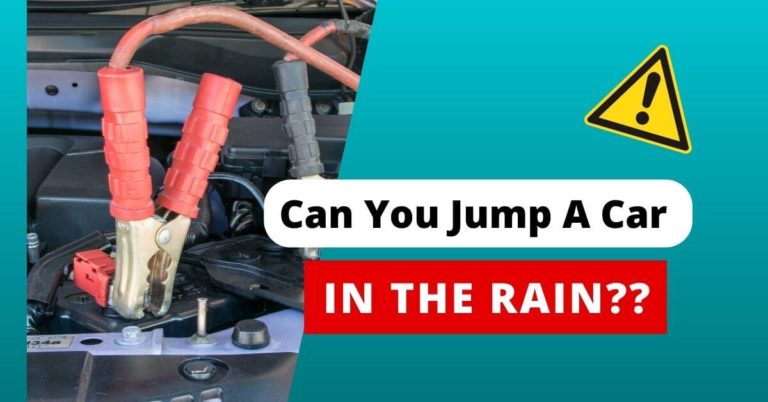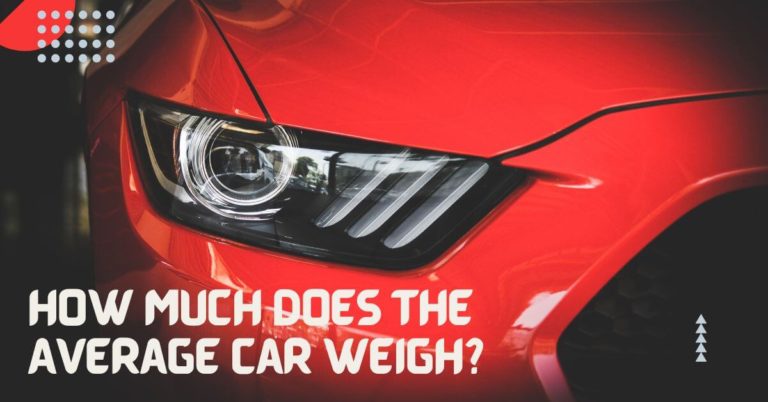Common Problems After Engine Replacement | Triumph Over Troubles
Dealing with common problems after engine replacement can feel like navigating a tricky road trip.
It’s a journey filled with anticipation, uncertainty, and planning.
Why? Because your car’s engine is its heart, and sometimes, it needs a fresh start. But like any significant journey, it comes with its challenges.
One of the most common problems after engine replacement is unexpected engine noises.
But don’t worry; this comprehensive guide is here to help you navigate the ins and outs of engine replacement, delve into the common problems you might encounter, and provide tips on how to prevent them.
Remember, knowledge is power. The more you understand engine replacement, the better you’ll be equipped to make informed decisions about your vehicle’s health.
So buckle up because this is going to be an enlightening ride!
Stay tuned as we delve deeper into the world of engine replacement. It’s time to hit the road!
Let’s get started!
Table of Contents
The Journey of Engine Replacement: What to Expect
Replacing an engine is no small task. It’s a complex process that requires expertise, precision, and a deep understanding of the vehicle’s mechanics.
But what exactly does this process entail?
First, the old engine is carefully removed from the vehicle.
This involves disconnecting all the various components connected to the engine, such as the exhaust, intake, and electrical systems.
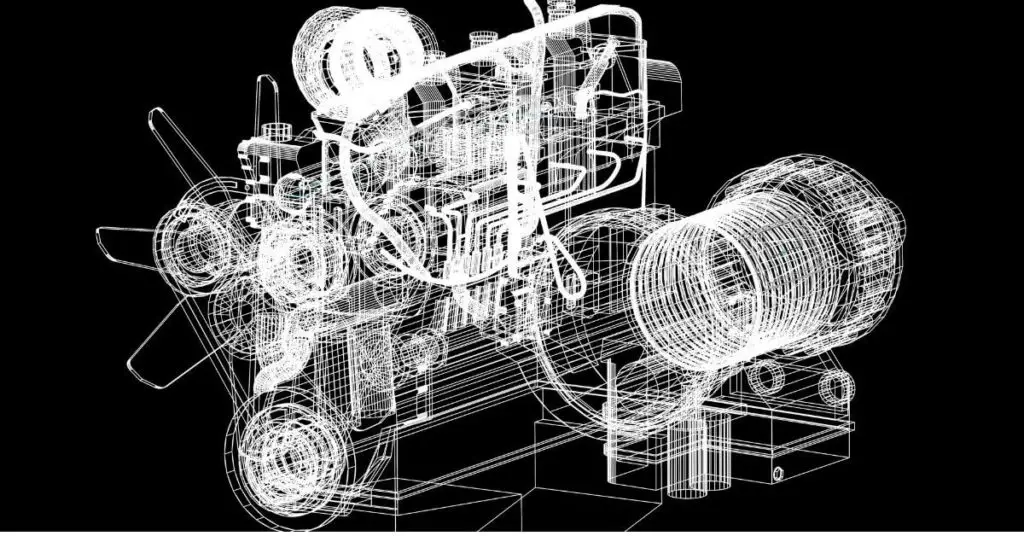
Once the old engine is out, the new one is installed. This involves connecting all the components to the new engine and ensuring everything is correctly aligned and secured.
However, the process continues.
After installing the new engine, it’s crucial to inspect the work by another mechanic who can catch any potential issues before they become significant problems.
This step is often overlooked but can be the difference between a successful engine replacement and a costly mistake.
To illustrate this point, let’s consider a real-life scenario. In a case reported by Torque News, the owner of a 2014 Jaguar decided to have his engine replaced.
Unfortunately, his car continued to experience problems even with the new engine. The culprit? Poor installation due to mechanic negligence.
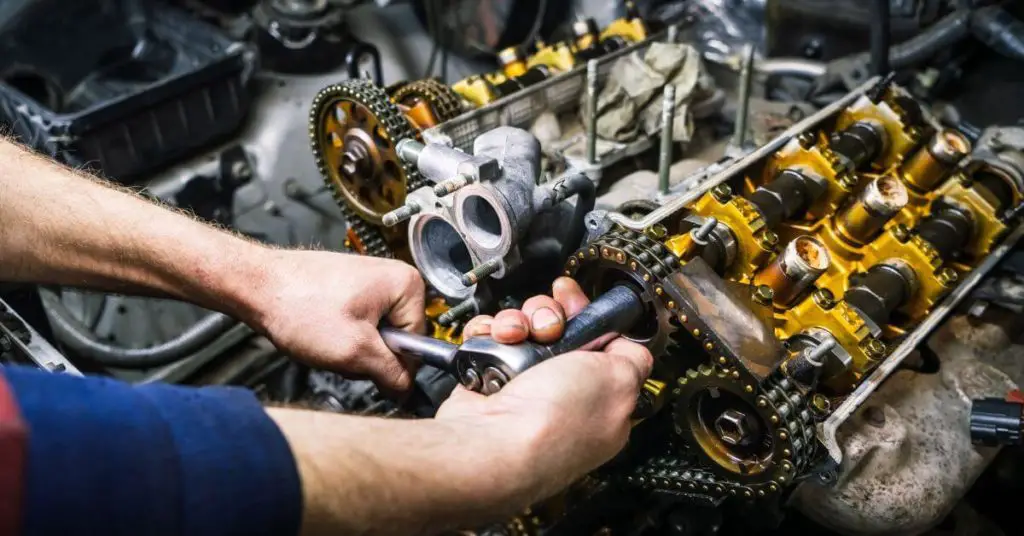
This case study is a stark reminder of the importance of ensuring that the engine replacement mechanic has the necessary expertise and experience.
It also emphasizes the need for a second opinion or inspection after the work is done to catch potential issues before they escalate.
So, if you’re considering engine replacement, it’s essential to understand the process and the potential pitfalls.
With the right knowledge and precautions, you can ensure that your engine replacement goes smoothly and gives your vehicle a new lease on life.
Pro Tip: Always ensure a certified professional performs the engine replacement. This ensures the job is done correctly and can save you from headaches.
One important aspect to consider during this process is how the engine replacement might affect the weight and balance of your car.
A significant weight change could influence your car’s width and overall performance.
To understand more about how the size and weight of a car can impact its performance, check out our article on the Average Width Of A Car | Secrets Why Size Truly Matters.
Always ensure a certified professional performs the engine replacement to avoid common problems after engine replacement.
So, let’s continue our journey as we explore the reasons behind choosing engine replacement.
Onward we go!
Why Choose Engine Replacement?
Engine replacement is a significant decision that comes with its considerations.
This section explores the reasons behind engine replacement, including breathing new life into your vehicle, cost-effectiveness in the long run, boosting vehicle value, and being environmentally friendly.
- Breathing New Life into Your Vehicle: Engine replacement can give your car a new lease on life. It can enhance performance, improve fuel efficiency, and extend the lifespan of your vehicle.
- Cost-Effective in the Long Run: While the upfront cost might seem high, engine replacement can be more cost-effective in the long run, especially if your old engine requires frequent and costly repairs.
- Boosting Vehicle Value: If you plan to sell your car, a new engine can significantly increase its value. It’s a selling point indicating the vehicle has plenty of life left.
- Environmentally Friendly: Newer engines often run cleaner and are more fuel-efficient. By replacing your old engine, you’re improving your vehicle and doing your bit for the environment.
Takeaway: Engine replacement is not just a solution; it’s an investment in your vehicle’s performance, longevity, and overall health.
Choosing to replace your engine is like choosing to take the scenic route on a road trip.
It might seem daunting initially, but the rewards make it worthwhile.
Let’s gear up as we delve into the common problems after engine replacement you might encounter
Let’s dive in!
Navigating Common Problems After Engine Replacement
Just like a road trip can have unexpected bumps and detours, the journey of engine replacement can come with its own set of challenges.
This section unveils these common problems after engine replacement and provides effective solutions.

From unexpected engine noises to smoke signals, the mystery of the check engine light, unidentified fluid leaks, a rough-running engine, and power loss.
Unexpected Engine Noises: Decoding the Signals
One of the first signs of trouble after an engine replacement can be unexpected engine noises.
These can range from knocking sounds to high-pitched squeals, each indicating a different potential problem.
For instance, a review of the 2019 Volkswagen Jetta noticed a peculiar grinding noise from the engine bay while driving at relatively low RPMs and speeds of around 25-35 MPH.
This was a clear sign of an underlying issue that needed attention. You can read more about this experience in our detailed review. Is the 2019 Volkswagen Jetta a good car?.
Smoke Signals: What Your Car Is Trying to Tell You
Smoke emanating from your vehicle post-engine replacement can be alarming. The color and timing of the smoke can provide valuable clues about the underlying issue.
Whether it’s blue smoke indicating oil burning or white smoke suggesting coolant leaks, decoding these smoke signals is crucial.
The Mystery of the Check Engine Light
The illumination of the check engine light post-engine replacement can be a cause for concern. It could indicate anything from a loose gas cap to a serious engine malfunction.
Getting a professional diagnosis is key to resolving this mystery.
Unidentified Fluid Leaks: A Cause for Concern
Spotting unidentified fluid underneath your car can be worrisome. It could be a sign of a leak in the engine, transmission, or other systems.
Identifying the type of fluid and its source is essential to addressing the issue.
The Struggle of a Rough-Running Engine
A rough-running engine post-replacement can be disconcerting. It could be due to improper timing, faulty spark plugs, or fuel system problems.
A thorough check-up can help identify and rectify the situation.
The Dilemma of Power Loss in Your Engine
Experiencing power loss in your newly replaced engine can be frustrating. It could be due to various issues, from a clogged fuel filter to a malfunctioning sensor.
A comprehensive engine diagnosis can help pinpoint the problem.
Remember: Challenges are part of any journey. The key is understanding, addressing them effectively, and moving forward.
Navigating these common problems after engine replacement might seem daunting, but it becomes manageable with the proper knowledge and guidance.
So, let’s continue our journey as we explore how to prevent these common issues.
Onward we go!
Mastering the Art of Prevention
Prevention is better than cure.
You can prevent many common problems after engine replacement by taking proactive steps.
This section explores the importance of replacing worn-out timing belts or chains, the role of O-rings and gaskets in your engine, and the necessity of clean air filters.
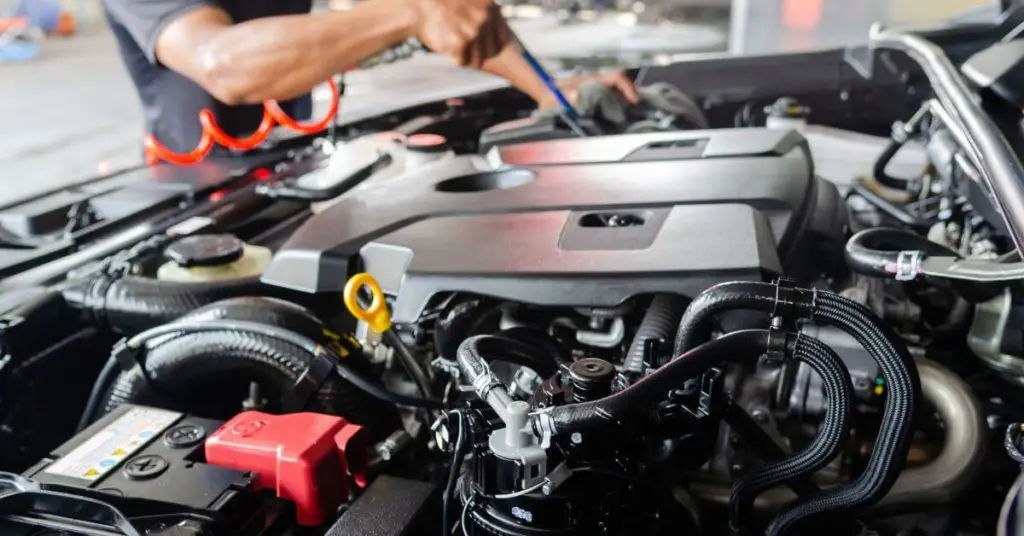
Also, why you should replace clogged oil filters, the impact of a failing water pump, the significance of replacing broken seals and damaged sensors, and the effect of faulty spark plugs on your engine’s performance.
The Importance of Replacing Worn-Out Timing Belts or Chains
Timing belts or chains are crucial in synchronizing your engine’s functions. A worn-out timing belt can lead to poor performance or severe engine damage.
Replacing it during an engine replacement can save you from potential problems.
The Role of O-Rings and Gaskets in Your Engine
O-rings and gaskets act as seals, preventing leaks in your engine. A faulty O-ring or gasket can lead to fluid leaks and engine damage.
Ensuring these components are in good condition is key to a healthy engine.
The Necessity of Clean Air Filters
Air filters prevent harmful debris from entering your engine. A dirty air filter can reduce engine efficiency and lead to increased fuel consumption.
Replacing the air filter during engine replacement can enhance engine performance.
Why You Should Replace Clogged Oil Filters
Oil filters keep your engine oil clean by trapping harmful particles. A clogged oil filter can lead to poor engine lubrication and increased wear and tear.
Replacing the oil filter is a simple step that can significantly impact your engine’s health.
The Impact of a Failing Water Pump
The water pump is responsible for circulating coolant through your engine, keeping it from overheating. A failing water pump can lead to engine overheating and severe damage.
Replacing it during engine replacement can prevent these issues.
The Significance of Replacing Broken Seals and Damaged Sensors
Seals prevent fluid leaks, while sensors monitor various engine functions. Broken seals can lead to leaks, and damaged sensors can lead to incorrect readings and poor engine performance.
Replacing these components can ensure your engine runs smoothly.
The Effect of Faulty Spark Plugs on Your Engine’s Performance
Spark plugs play a crucial role in igniting the fuel-air mixture in your engine. Faulty spark plugs can lead to poor fuel efficiency and engine misfires.
Replacing them can enhance your engine’s performance and efficiency.
Other Components You Should Consider Replacing
Other components to consider replacing include the fuel pump, thermostat, and serpentine belt. While these might not be part of the engine, they play a crucial role in its operation and performance.
Key Takeaway: Prevention is an art, one that involves understanding your engine, identifying potential issues, and taking proactive steps to prevent them.
Mastering this art can save you from headaches and ensure your engine replacement journey is smooth.
So, we’ve explored how to prevent common problems after engine replacement.
But to truly appreciate the intricacies of engine replacement, it’s important to understand the complexity of a car.
A vehicle is not just a single entity but a marvel of engineering, composed of numerous interconnected parts, each playing a vital role in its operation.
We’re not just referring to a single component when we talk about engine replacement.
We’re talking about a complex system that interacts with numerous other parts within your vehicle.
From the pistons and crankshaft within the engine to the transmission and exhaust system, every part must work harmoniously for your vehicle to run smoothly.
Understanding a car’s complexity and its numerous parts can help you appreciate the intricacies of engine replacement.
It’s not just about swapping out an old engine for a new one; it’s about ensuring that every part is compatible and functions as it should.
To better understand the complexity of a vehicle, we’ve put together an in-depth article that explores the many parts that make up a car.
This article will give you a comprehensive overview of what goes into a car, from the major components like the engine and transmission to the smaller parts like spark plugs and tail lights.
You can read more about the many parts that make up a car here.
By understanding the complexity of your vehicle, you’ll be better equipped to tackle any problems that may arise after an engine replacement.
Engine Replacement vs. Buying a New Car: The Great Debate
Regarding the financial aspect of engine replacement, one might wonder if it’s more cost-effective than buying a new car.
This section delves into a real-world scenario to shed some light on this.

It also explores the long-term performance of a replaced engine and the role of insurance and warranty coverage in your decision.
As Good Car Bad Car reported, the expenses associated with an engine overhaul can vary greatly.
Depending on the type of engine and the extent of the work needed, costs typically range from $2,500 to $4,000.
Opting for a brand-new engine from the factory and having it installed at the dealership can increase the price to $4,000 for a four-cylinder engine and $10,000 for a higher-performance engine.
Contrast this with the cost of buying a new car, which can be significantly higher.
When you factor in insurance, registration fees, and the rapid depreciation of a new vehicle, the costs quickly add up.
The article suggests that, in most cases, it’s more economical to repair a car than to buy a new one, even when major powertrain repairs are needed.
The Cost-Effectiveness of Engine Replacement
Replacing an engine is a hefty expense upfront. However, compared to the cost of buying a new car, it is often a more cost-effective solution.
It allows you to extend the life of your current vehicle without the financial commitment of a new car purchase.
The Long-Term Performance of a Replaced Engine
A replaced engine can offer long-lasting performance, often comparable to a new car’s.
With proper maintenance and care, a replaced engine can serve you reliably for many years, making it a worthy investment.
The Role of Insurance and Warranty Coverage in Your Decision
Insurance and warranty coverage can play a significant role in your decision.
If your engine replacement is covered under warranty, it can significantly reduce out-of-pocket expenses.
On the other hand, insurance costs can be crucial if you’re considering buying a new car.
In Conclusion: The decision between engine replacement and buying a new car is a personal one, influenced by factors like cost, performance expectations, and coverage.
It’s about weighing the pros and cons and choosing the best suits your needs and circumstances.
As we conclude our journey, remember that whether you choose engine replacement or a new car, the goal is to ensure a smooth and enjoyable driving experience.
So, buckle up and enjoy the ride! Happy driving!
Exploring the Middle Ground: The Potential of Remanufactured Engines
In the debate between engine replacement and buying a new car, there’s a middle ground that often goes unnoticed – remanufactured engines.
Let’s explore this potential game-changer.
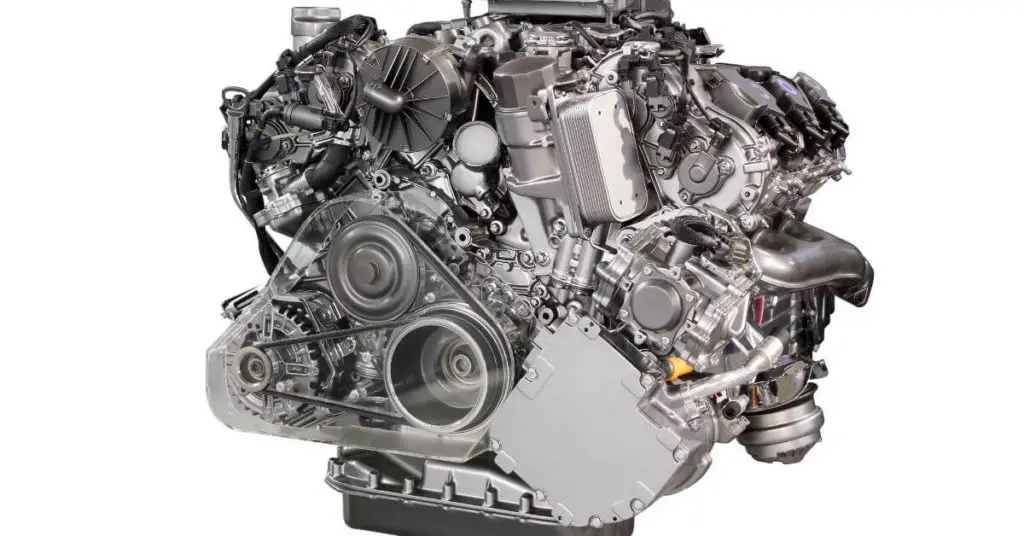
Remanufactured engines have been disassembled, cleaned, inspected, and rebuilt with new or refurbished parts.
They offer a blend of the benefits of new and replaced engines, making them a compelling option worth considering.
Cost-Effective Solution
Remanufactured engines are typically more affordable than new engines, making them a cost-effective solution.
They offer the performance and reliability of a new engine without the hefty price tag, easing the financial burden.
Reliable Performance
Remanufactured engines undergo rigorous testing and quality checks to meet or exceed original equipment manufacturer (OEM) standards.
This means you can expect reliable and efficient performance like a new engine.
Environmentally Friendly
Choosing a remanufactured engine is also an environmentally friendly choice. It reduces the need for new materials and energy for manufacturing, contributing to resource conservation and lower emissions.
Warranty Coverage
Most remanufactured engines come with a warranty, offering peace of mind. This warranty can cover parts and labor, protecting you from unexpected costs related to engine issues.
In Conclusion: Remanufactured engines present a middle ground that combines the benefits of engine replacement and buying a new car.
They offer a cost-effective, reliable, and environmentally friendly solution, making them a worthy contender in the great debate.
As we continue our journey in the world of automotive knowledge, remember that the best choice is the one that suits your needs, preferences, and budget.
FAQs:
Engine replacement can bring up a lot of questions. Let’s address some of the most frequently asked questions.
How Long Can You Expect a Car to Last After Engine Replacement?
With proper maintenance and care, a car with a replaced engine can last as long as a new car.
The lifespan can vary based on factors like the quality of the replacement, the car’s make and model, and how the vehicle is used.
What Should You Look Out for After Replacing Your Engine?
After replacing your engine, watch for unusual noises, smoke, or leaks. Also, monitor your car’s performance and fuel efficiency.
If you notice any issues, you should check them out immediately.
What Changes When You Replace a Car Engine?
When you replace a car engine, you give your car a new heart. This can lead to improved performance and fuel efficiency.
However, it’s important to note that other vehicle components remain the same.
How Long Does It Take for a New Engine to Settle In?
A new engine typically takes around 500 to 1000 miles to settle in. During this period, careful driving is advisable, avoiding pushing the engine too hard.
Is It Advisable to Buy a Car with a Replaced Engine?
Buying a car with a replaced engine can be a good deal, especially if the car has been well-maintained professionally. However, it’s important to thoroughly inspect before making the purchase.
Does Replacing an Engine Devalue the Car?
Replacing an engine does not necessarily devalue the car. The car’s value can increase if the replacement is done professionally and the new engine improves its performance and reliability.
Does the Mileage Reset with a New Engine?
The mileage of the car does not reset with a new engine. The odometer reflects the mileage of the vehicle as a whole, not just the motor.
In Conclusion: Engine replacement can seem daunting, but with the proper knowledge, it doesn’t have to be.
Remember, knowledge is power. The more you know, the better decisions you can make for your car.
Wrapping Up: The Road Ahead
Navigating the world of engine replacement can be a complex journey, filled with decisions and considerations.
Whether you’re contemplating engine replacement, considering a remanufactured engine, or weighing the pros and cons of buying a new car, the choice ultimately comes down to your specific needs, budget, and circumstances.
As we navigate the world of engine replacement, it’s also worth considering the future of automobiles. Electric vehicles, for instance, offer a different set of challenges and benefits.
While they don’t have traditional combustion engines, they have their equivalent – the battery pack.
Like traditional engines, replacing a battery pack in an electric vehicle has potential issues and considerations.
Suppose you’re interested in learning more about electric vehicles and what their future might look like.
In that case, you can read our article on the Future of Electric Vehicles | Guide to the EV Revolution.
This article provides an in-depth look at electric vehicles, their benefits, and their potential challenges.
Remember, every car’s journey is unique, and what works for one might not work for another.
It’s about understanding your car, knowing your options, and making informed decisions that ensure a smooth and enjoyable ride.
At SpotForCars, we’re here to guide you through every twist and turn of your automotive journey. From in-depth articles to expert advice, we provide the resources you need to keep your car running at its best.
Got More Questions?
If you have more questions about engine replacement or other car-related topics, please visit our Car Q&A section.
Here, you can find answers to your car questions from mechanics and enthusiasts alike.
So, buckle up and join us on the road to automotive knowledge. Your journey is just beginning, and we’re excited to be a part of it. Keep exploring, keep learning, and most importantly, keep driving!

